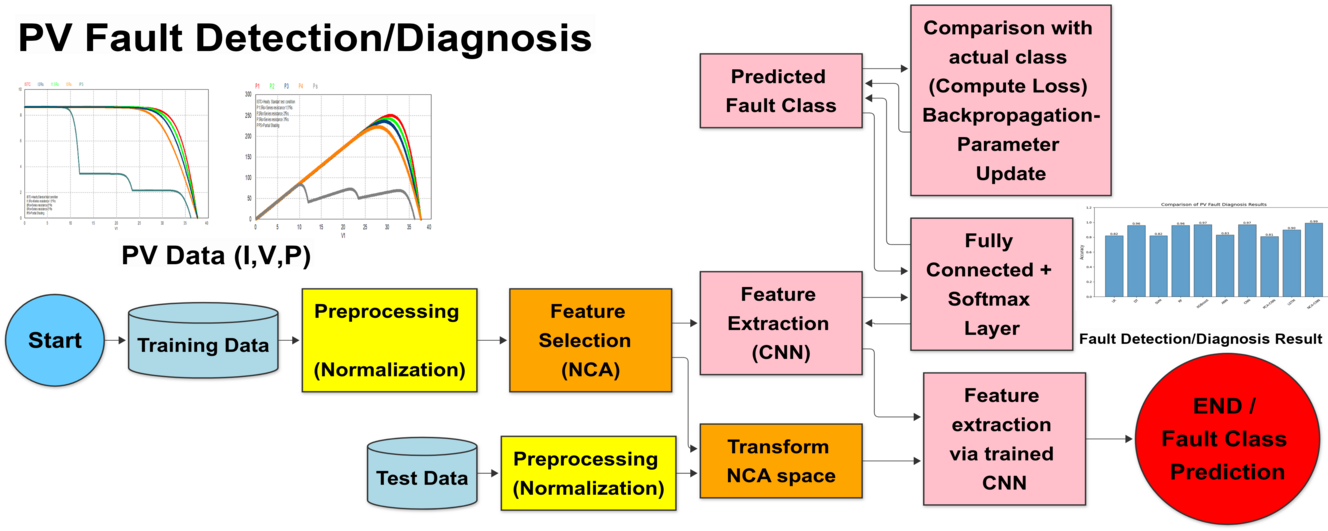 Open Access
Open Access
ARTICLE
Enhanced Fault Detection and Diagnosis in Photovoltaic Arrays Using a Hybrid NCA-CNN Model
1 Electrical and Electronics Engineering Department, Engineering Faculty, Bilecik Seyh Edebali University, Bilecik, 11210, Turkey
2 Biosystem Engineering Department, Agriculture and Natural Sciences Faculty, Bilecik Seyh Edebali University, Bilecik, 11210, Turkey
* Corresponding Author: Yasemin Onal. Email:
(This article belongs to the Special Issue: Advanced Artificial Intelligence and Machine Learning Methods Applied to Energy Systems)
Computer Modeling in Engineering & Sciences 2025, 143(2), 2307-2332. https://doi.org/10.32604/cmes.2025.064269
Received 10 February 2025; Accepted 27 March 2025; Issue published 30 May 2025
Abstract
The reliability and efficiency of photovoltaic (PV) systems are essential for sustainable energy production, requiring accurate fault detection to minimize energy losses. This study proposes a hybrid model integrating Neighborhood Components Analysis (NCA) with a Convolutional Neural Network (CNN) to improve fault detection and diagnosis. Unlike Principal Component Analysis (PCA), which may compromise class relationships during feature extraction, NCA preserves these relationships, enhancing classification performance. The hybrid model combines NCA with CNN, a fundamental deep learning architecture, to enhance fault detection and diagnosis capabilities. The performance of the proposed NCA-CNN model was evaluated against other models. The experimental evaluation demonstrates that the NCA-CNN model outperforms existing methods, achieving 100% fault detection accuracy and 99% fault diagnosis accuracy. These findings underscore the model’s potential in improving PV system reliability and efficiency.Graphic Abstract

Keywords
Cite This Article
 Copyright © 2025 The Author(s). Published by Tech Science Press.
Copyright © 2025 The Author(s). Published by Tech Science Press.This work is licensed under a Creative Commons Attribution 4.0 International License , which permits unrestricted use, distribution, and reproduction in any medium, provided the original work is properly cited.


 Submit a Paper
Submit a Paper Propose a Special lssue
Propose a Special lssue View Full Text
View Full Text Download PDF
Download PDF Downloads
Downloads
 Citation Tools
Citation Tools